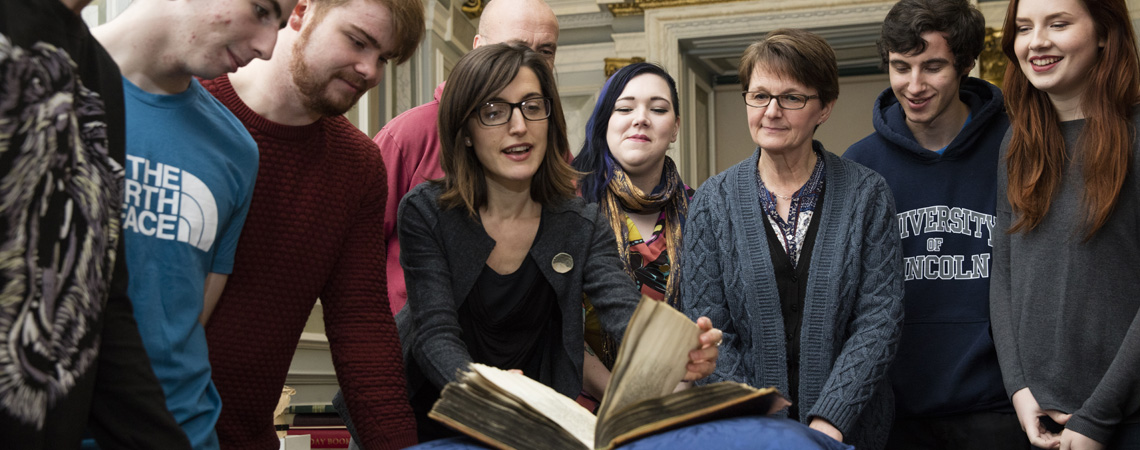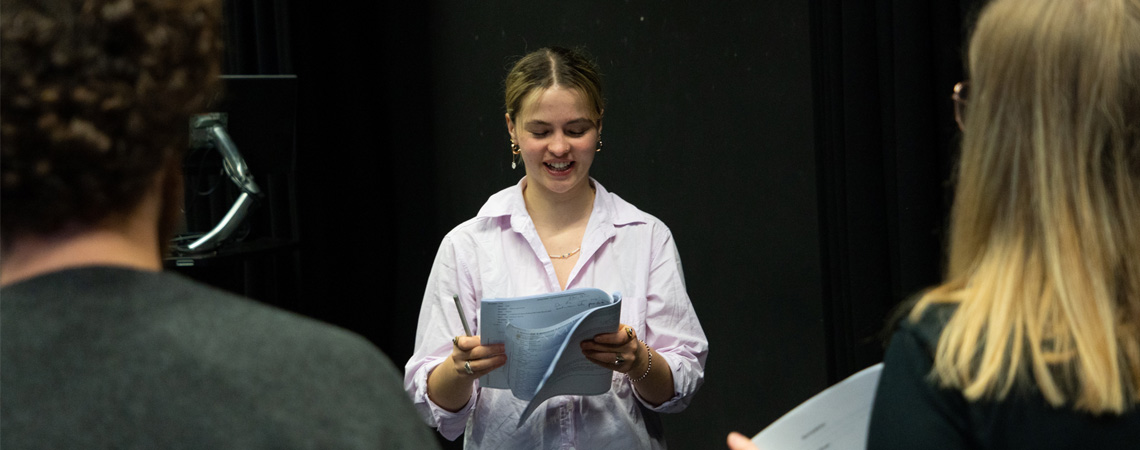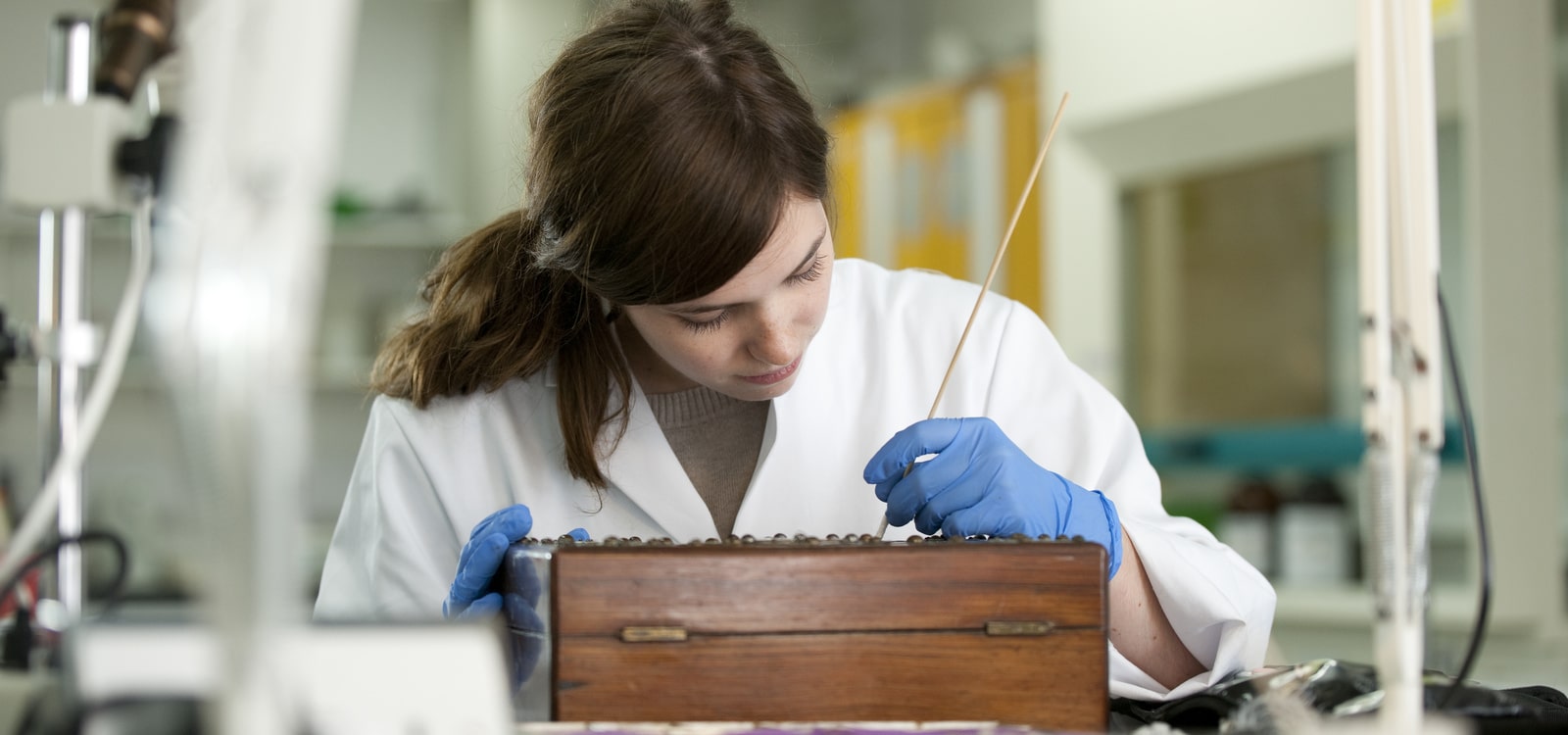Module Overview
In this module, students will have the opportunity to take a vivid and intellectually exciting journey through primary and secondary sources in order to understand the historical trajectory of the Iberian Peninsula from the end of the sixth century to the collapse of the Caliphate of Córdoba in 1031. The aim of the module is to provide an introduction to two major medieval cities, Toledo and Córdoba, via acquaintance with and discussion of material that allows us to reflect upon a fascinating complex of problems.
Module Overview
In the Twentieth Century new aviation technologies transformed understandings of war, peace, civilian and military. The module considers how ideas about air power developed, what informed this understanding of war, and what the consequences were. This is not a traditional military history concerned with narrative accounts of battles or armies, but one that asks questions about the relationship between military and civilian in society and culture in the twentieth century.
Module Overview
Why have detective narratives proved so enduringly popular? This module will interrogate the iconic figure of the private eye in American popular culture, through the fiction and film of the twentieth and twenty-first century.
Module Overview
This module explores a key resource for understanding the thoughts, feelings and conversations of ancient people. Graffiti in Greek and Latin (and other languages) were marked onto fixed and portable surfaces throughout the ancient Mediterranean world, and their informal and non-official nature offers a unique window into the lives and worldviews of people often invisible or marginal in standard documentary, literary and material sources
Module Overview
This module will give students an opportunity to engage in close philosophical study of texts by the most influential ancient philosophers. Texts will be studied in English translation. They will include works by Plato and Aristotle, as well as by less familiar philosophers of the ancient world (c. 500 BC-500 AD Greece and Rome). The focus of the module will be philosophical, not interpretive or historical: students will be expected assess the credibility of the positions and arguments advanced by Plato, Aristotle and others and to develop their own views in dialogue with these thinkers.
Module Overview
The victories of Arab armies over the forces of the Byzantine and Persian Empires in the seventh century were of monumental importance. Not only did they signal the decline of the two great superpowers of the late ancient world but they were accompanied, some scholars would argue caused, by the rise of a new monotheistic world religion: Islam. The first half of the module seeks to understand the conquests of the Arab armies and the emergence of Islam historically and culturally, in two specific contexts: (1) political conflict between the Persian and Byzantine Empires, during which Arabia often acted as a military frontier and different Arab groups as allies to one side or another; (2) contact and competition between Christianity, Judaism and other religious traditions in Arabia. The second half of the module explores how, after the initial victories over the Byzantine and Persian Empires, the new Islamic polity renewed itself, rolled forward further conquests, and focuses in particular on how an ‘Islamic’ culture was formed.
Module Overview
This module will explore the different schools of thought and the political activities of the various groups and individuals that comprised the anarchist movement. Anarchism is a political doctrine based on freedom, egalitarianism and social justice and that developed in Europe as a political movement in the mid-XIX century. Anarchism never reached the ascendancy achieved by liberalism or communism; however, it had a significant influence on the political ideas, social movements, culture, and education of the international labour movement.
Module Overview
This module examines both the birth and development of the concept of chivalry in the Middle Ages. Students can use a wide range of primary sources, as well as medieval and contemporary historiography, to explore how the role, image and function of medieval knights evolved over time.
Module Overview
The module will examine consumption in many of its forms in early modern Western Europe. Focusing on a number of areas, such as food, clothing, furnishings, houses and other goods increasingly accessible to people at all levels of society, the module will encourage students to consider how and why these were available.
Module Overview
This module offers an opportunity to engage with American literature (in a variety of forms) and some of its socio-historical, political and ideological contexts from the late 1990s to the present day. We will explore aspects of canon-formation in American fiction, and study a selection of texts by both new and established writers, in some cases at the point where they are first published in paperback. We will take a thematic approach, locating American cultural production in regional, national and global contexts, with a particular emphasis on writing in the 21st century. There are no pre-requisites for this module.
Module Overview
This module will enable students to engage in the research and development of displays through the process of curating an exhibition for the museum or heritage sector. Students will select objects and structure this selection through an appropriate narrative. They will propose modes and examples of interpretation such as gallery text, audio or visual aids. The emphasis will be on developing knowledge and understanding of the role and responsibilities of the curator, and the project will enable students to evidence a focused and critically rigorous curatorial rationale.
Module Overview
This module explores the history of science, sexuality and politics in the UK, Continental Europe, the US and Latin America from 1850 to 2000. It will give students an excellent grounding in modern and contemporary history that will complement further modules at level 3 that deal with sexuality, gender, race, science and medicine. It module examines the controversial rise of eugenics movements as a global phenomenon. The purpose of this module is to sustain a balanced and informed discussion about how race, reproduction, and the improvement of human heredity have acquired great political relevance in the modern period. It explores how scientists and different governments became preoccupied with hereditary theories, race, reproduction and sexual behaviour. It examines how societies across the Atlantic developed government policies around areas such as family planning, pronatalism, sterilisation, and race, which culminated in the implementation of euthanasia programmes in Nazi Germany. This module looks at eugenics programmes and politics in a transnational context, exploring how, for example, Nazi Germany’s sterilisation programmes were inspired by those already implemented in the US and how a number of Latin American countries adapted and transformed eugenics policies from Southern Europe and developed whitening policies.
Module Overview
This module explores the various ways in which the world was put on display in the nineteenth century, and with what aims and effects. The nineteenth century was a period during which museums, galleries, exhibitions, zoos and circuses all expanded in numbers and took on distinctive modern forms; it was also one where the ‘freak show’ became both popular but also frowned upon, while optical toys and attractions reformed ‘ways of seeing’.
Module Overview
Monsters and attics, desolate landscapes, imprisonment and pursuit: the gothic genre emerged in the late eighteenth century to depict our darkest fears and desires. Termed 'the literature of nightmare', gothic departs from a realistic mode of representation and employs a powerful means of symbolic expression. Students are given the opportunity to investigate ways in which the genre has explored psychological and political anxieties, and themes of sexual and social transgression. We consider literary texts from the eighteenth to the twenty-first centuries, including literature and film, and we give attention to sub-genres such as ‘female gothic’, ‘imperial gothic’ and ‘children’s gothic’.
Module Overview
This module will explore the development, decline and revival of stained glass from the early middle ages to the mid twentieth century. The focus will be on British stained glass with particular reference to windows that students can visit in person, particularly in Lincoln Cathedral and the parish churches of the region. Students will learn to analyse windows through a number of methodological frameworks in particular: production (design and manufacture), consumption (patronage, iconography and meaning) and aesthetics (style, drawing, manipulation of light).
Module Overview
This module explores what it meant to grow up and to grow old in the nineteenth century, through often contradictory accounts of experiencing age categories from childhood to old age.
Students will have the opportunity to examine various constructions of ageing, to reflect on age as a crucial facet of identity. This module considers age as a lens to explore the nineteenth century as a transitional period of growth and expansion as well as decay and decline, through a range of Romantic and Victorian texts.
Module Overview
Historian, journalist, political commentator and gossip columnist Matthew Paris, monk of St Albans, wrote what is still one of our main sources for British history of the thirteenth century. This module looks at Matthew Paris’s Great Chronicle, considering both Matthew himself and what he tells us about thirteenth-century English society. Students have the opportunity to think about what history was in the thirteenth-century and about attitudes to foreigners and national identity; power and poverty; propaganda and fiction; and time, space and the apocalypse.
Module Overview
Students at level three have to undertake an Independent Study project. This is an extended piece of work that gives them the opportunity to demonstrate they have acquired the skills to undertake historical inquiry and analysis.
Module Overview
In their final year, every student on the BA (Hons) History degree programme at the University of Lincoln must produce an independent study. This is an extended piece of work which gives them the opportunity to demonstrate they have acquired the skills to undertake detailed and substantial subject-specific research and writing founded on critical inquiry and analysis.
Module Overview
This module covers the history and historiography of one of the most popular and sophisticated systems of medicine in the world: Chinese medicine. Starting from a comparison of the conceptualisation and representation of the body in early China versus ancient Greece, the module introduces students to key ideas in Chinese medicine such as “Yin Yang”, “Five Processes”, “Qi”, “Meridians” and “Five Organs and Six Bowels”. Diagnosis (including pulse-taking and tongue examination) and therapy (including moxibustion and acupuncture) are explored, alongside the Chinese tradition of “self-cultivation” and the various techniques that promote health –– and even immortality. Theories concerning food and drugs are dissected, and the tremendous plurality of practitioners throughout the history of Chinese medicine are analysed in detail. No prior knowledge on the history of medicine, Chinese history, or Chinese language is required.
Module Overview
The module will give students practical experience of the workplace. Students will normally define, plan and undertake a specific project. In addition students will gain experience of a range of tasks appropriate to sector-specific professional skills.
Module Overview
Hong Kong’s history lies at the intersection of Chinese, British imperial, and transnational histories. This module explores the history of Hong Kong from its colonisation by Britain in 1841 up to the present day.
The module seeks to introduce the city’s history to students, explore the ways historians have engaged with and approached this history, and to help students develop skills of historical analysis and debate. Through engaging with the rich historical debates and with English-language and translated primary materials, students on this module may study issues and themes including, but not limited to: imperialism; colonialism; transnational networks; international and diplomatic history; economic and business history; social history; urban history; migration and diaspora history.
Module Overview
One of the ways in which early modern monarchs and rulers legitimised their authority and projected their power was through architecture and urban design. In this period capital cities across Europe, America and Asia were embellished with architecture and urban design inspired by Renaissance ideals of social order. This module examines the ways rulers imagined and built a number of imperial capital cities across Europe, America and Asia.
Module Overview
In this module students have the opportunity to research in depth an author or topic of their choosing. Students are expected to commence research over the summer between Levels 2 and 3 and, on their return, have regular, one-to-one meetings with a tutor who is a research specialist in that field. The supervisor offers advice and direction, but primarily this module encourages independent research leading to the production of a 10,000 word dissertation.
Module Overview
What was the workhouse? What was life like within its doors? Into the workhouse explores this infamous institution in England and Wales, from its beginnings as just one of a variety of methods of relieving poverty, through to its zenith in the Victorian era with the implementation of a harsh regime. We will trace this transition, from fairly ad hoc cottage through to purpose-built institution, throughout this module. We start the course by asking: who were ‘the poor’? And what help was available to them? We will learn what poor relief was, and how it was an important part of a broader economy of makeshifts - offering everything from money to bread, from shoes to tools, and from a bed to medical help. How poor relief operated varied from place to place until the passage of the Poor Law Amendment Act in 1834. This ‘New’ poor law placed a Commission in charge of a compulsory workhouse system with which we are familiar from novels and films. Why and how this new system was created will be our next focus, before we embark on a field trip to a workhouse and museum to understand what life was like within its walls.
While the Victorian workhouse is often portrayed as a static and dreary Dickensian place, full of helpless individuals, this module will uncover a fresh, dynamic perspective. We will find out how individuals navigated and used workhouses, and how they asserted their agency. We will understand how workhouses were protested against, and pulled into disrepute in a series of national scandals. Workhouses were also a site of immense social innovation, especially in medical care. The institution saw renewed attention in the late nineteenth-century but came to an end in 1929. What led to its demise and the lasting legacy will be studied in the final week. In this module you will critically analyse a wide range of sources, including official reports, parish registers, plans and maps and workhouse artefacts, as well as first-hand accounts of workhouse life in legal depositions, pauper letters, poems and diaries.
Module Overview
This module is designed to examine how terms such as Ireland and Irishness have been constructed and questioned across the last century, a period of immense and often turbulent historical and social change. It aims to explore the representation of place, the nature of nationalism, the changing family unit, gender roles and Ireland's relationship to globalization in Irish poetry, drama and fiction.
Module Overview
This module responds to the recent interest in the representation of lives within literary studies. It discusses a range of life representations (including biography, autobiography, letters, confessions, memoirs, and poems) from the Romantic period to the contemporary moment. Students may consider the origins of autobiography, address Modernist experiments with life representations, and discuss twentieth-century and contemporary innovations, including disability narratives and cross-cultural autobiographies. Themes such as the construction of selfhood, conceptions of memory, the relational self, and the ethics of life writing are addressed.
Module Overview
The first principle of ecological thinking is that it is not only human beings that are meaningful, and that we are neither so separate from, nor so dominant over, the non-human as we tend to think. In this module students can explore what difference it makes to read literature from this perspective. We study literature as part of our complex interaction with our environment, and, perhaps sometimes, as a uniquely valuable one. Students can read texts from ancient Greek pastoral to contemporary dystopias, and from the poet John Clare to the woodland historian Oliver Rackham.
Module Overview
This module explores how criminal lunatics - criminals who developed insanity in prison and individuals who committed a crime whilst insane - were represented and treated in nineteenth century Britain. Students can examine why some criminals were deemed insane and others were not; how criminal lunacy was defined in medicine and in law; how and why the institutions, people and practices for treating the criminal and criminal lunatic changed over the period; the role gender and class played in crimes, trials, diagnoses and treatment; and how criminality and criminal insanity were represented by laymen.
Module Overview
Making Militants explores the role of violent teaching practices of various sorts in the making of men and women in Late Antiquity. Focusing on the fourth, fifth and sixth centuries, it addresses a pivotal period in the transition from the ancient to the medieval world, surveying the multiple small-scale arenas that made up the Late Antiquity – the household, the schoolroom, the barracks and the monastery. By close reading of letters, biographical accounts, rulebooks, speeches and a wide range of other sources, we consider how violent educative practices made people who were capable of operating in a changing, unpredictable and often dangerous world. The men and women who were made in such spaces were the products of a society that was fundamentally violent, their own violence a product of long-established socialisation practices rather than acts of anti-social deviance.
Module Overview
This module will analyse how the medicalised body has been represented, exploited, challenged and reclaimed in art and visual culture. The themes, ideas, priorities and objects of medicine – such as death, health, sexuality, taboo, trauma, bodily functions, and viscera – have taken centre stage in art and visual culture since the end of the nineteenth century. This module will explore the manifold ways in which artists have engaged with subjects including medical technologies, disease, disability, blood, and pain, and we will do so in relation to constructions of gender, sexuality, race, class and ability. What significance do pathology, disease, and patient experience take on in art and visual culture? To what effects have artists portrayed and perhaps questioned modern therapies and medical technologies, and their subjects, practices and theories? We will focus on a range of media including painting, sculpture, performance art, conceptual art, film, and photography.
Module Overview
The 20th century saw unprecedented social, economic, political and cultural change in Britain. However, the equally dramatic shifts in how sexuality and masculinity were experienced and represented are often ignored. This module aims to enable students to study the history of 20th Century Britain while using the lens of gender and sexuality to understand how ordinary men lived their lives. Students will get the opportunity to work with a wide variety of primary sources such as: court records, newspapers, film, photographs, music, autobiographies, oral history and literature.
Module Overview
This module explores the representation of East-West contact in Middle English romances, with a particular emphasis on the interlacement of racial and ethnic otherness and on different types of violence, from martial exploits and religious coercion to rape and cannibalism.
Students will have the chance to experience the breadth of the romance genre—its many thematic and topical branches, and its many sub-genres and their respective conventions—as well as insight to the actual act of crusading, and the cultural and social crises that arose from this act.
Module Overview
This module explores literature by nineteenth-century women writers through the Romantic and Victorian eras up to the suffrage campaigns. We explore how women negotiated cultural ideals of femininity and the challenges of authorship to produce writings across forms including novel, short story, poetry, play, and in a range of genres such as social realism, gothic, fairy tale and life writing. We consider how these works engage with contemporaneous social debates, especially about women’s social position. Authors addressed include Jane Austen, Anne Bronte, Dorothy Wordsworth, Christina Rossetti, Mary Molesworth, Amy Levy and Elizabeth Robins. These works are interpreted in relation to their cultural context and in light of recent critical debates.
Module Overview
This module will investigate the history of imperial Britain through material culture. The objects of study will range from trophies looted in battle and a drum transported with slaves to Virginia, to African sculpture depicting Europeans. Historians increasingly recognise the fresh insights that objects offer to major themes in imperial history such as gender, race and class. This module responds to these new academic developments and will use objects and their biographies to study key phases and themes in the history of the British Empire. Tracing the long history of such objects can enable us to explore how objects change meanings as they move through various colonial and post-colonial contexts.
Module Overview
This module examines the emergence, development and legacy of Pre-Raphaelitism and Aestheticism and how these movements influenced British culture. The module will explore how Pre-Raphaelite painters attempted to redefine the natural role of art and how ‘Aesthetic’ artists went on to question their approach. The module will explore the work of the key protagonists of each movement and how their work crossed over into other media such as stained glass, painted furniture and book illustration.
Module Overview
Portrayals of lesbian, gay, bisexual and transgender lives on screen are under increasing scrutiny from audiences, activists and media scholars. But, for much of the history of film and television, non-normative sexual and gender identities have been marginalised or hidden. This module examines the history of queer representations in screen culture from the era of silent films to the present day. Students will have the opportunity to work with examples from a range of national contexts, including (but not limited to) Britain and America, as well as engaging with influential scholarship in queer theory and the history of gender and sexuality.
Module Overview
How can history and heritage be more inclusive of LGBTIQ+ lives and experiences? And how can queer perspectives help us to better understand the complexities of the past? This module responds to these questions by examining queer histories from the Ancient World to the present day. Taking a global view, the module investigates how concepts such as sex, sexuality, gender, the body, friendship, and family have been organised in diverse ways across different times and places. In addition to considering how particular sexual and gender identities have emerged, the module also engages with ideas of queer history as a method for historical enquiry: one that is sceptical about binary analyses and linear narratives of progress.
Module Overview
Although early modern England was a kingdom, governed by a monarch, many historians have claimed that there was a strong ‘republican’ undercurrent to Tudor and Stuart political thought. This module introduces students to the key approaches and methodologies of the history of ideas by focusing upon the various ways in which scholars have studied and conceptualised republicanism in early modern England and the ongoing debate surrounding the origin, content and influence of republican ideas in the period 1500-1700.
Module Overview
This module considers the genre of modern science fiction and its evolution into one of today’s most popular narrative genres. Analysing a variety of forms – novel, short story, drama, graphic novel and film – students will have the opportunity to examine the socio-historical contexts of some of the most influential narratives of this period.
This ranges from the emergence of “scientific romance” in the late nineteenth century, to late twentieth-century forms like cyberpunk and radical fantasy; from the problems of defining “genre fictions” and privileging science fiction over fantasy, to our enduring fascination with alternate histories, non-human agents (robots, animals, genetic hybrids, the environment), ecocatastrophe and post-apocalypse.
Module Overview
This module concentrates on the works of Geoffrey Chaucer, with a particular emphasis on The Canterbury Tales, perhaps Chaucer’s most famous work. Students will have the opportunity to examine the General Prologue and a variety of tales in relation to their historical context and literary antecedents, and, throughout, specific attention will be given to questions of genre (ranging from fable and epic to satire and romance), literary authority, narrative construction, and medieval aesthetics.
Module Overview
This module provides an opportunity for students to study the works of Shakespeare in detail. The dissemination, influence, and adaptation of Shakespeare is unrivalled, and without an understanding of the conventions that the works dissolved and those that they initiated, a full appreciation of the canon of English literature is inevitably lessened.
This modules challenges Shakespeare’s status as an icon of tradition and elitism by reading the texts in the light of recent developments in critical theory, and by locating them in the culture of their age. Students will be invited to examine the ways in which different theoretical approaches might have a bearing upon the interpretation of Shakespeare, they will also be conversant with the religious climate of the late sixteenth and early seventeenth centuries, the conditions of performance and play-going in Shakespeare’s theatre, and the significant cultural and historical events of the period.
Module Overview
This module allows students to study the works of the Bard in detail, and to read them in the light of critical theory and literary history. Shakespeare’s plays are a cornerstone of the canon of English literature, but in wider culture they are often treated as inflexible repositories of ‘truth’ and ‘human nature’.
This module will resist such approaches, and concentrate instead upon the ways in which the plays address the concerns of their day, as well as how they have been made to signify in other eras. Students can develop an understanding of how Shakespeare’s work dealt with early modern dramatic conventions, politics, and thought; how it addressed questions of history, religion, and race; and how it shaped the culture within which it was written. This module considers Shakespeare’s mature comedies, histories, and tragedies.
Module Overview
This module allows students to pursue an in-depth study of one author’s literary or dramatic works. The author of choice varies from year to year according to academics’ current research interests, but potential authors may include writers of fiction and/or poetry such as Angela Carter, Charlotte Bronte, Iain Banks, Thomas Pynchon, M.R.James, Jane Austen and Sylvia Plath; and dramatists such as Caryl Churchill, Thomas Middleton, Aphra Behn, Ben Johnson and debbie tucker green. Students will explore the writer’s oeuvre in terms of themes, style, and engagement with form and genre traditions, and with contemporary cultural debates. We also address practicalities of authorship such as the role of editors, publishing/performance formats, and different readerships/audiences. Students will also consider the writer’s legacies including the ‘afterlife’ of their works in adaptation. As well as studying texts, students will engage with conceptual debates about the role of the author : is attention to the author’s life an outmoded and over-deterministic approach to the study of a text? or a necessary part of contextualisation? As we scrutinise the figure of the author in biography, literary societies, literary tourism and popular culture, we ask : what purposes does the ‘author’ as a cultural construction serve ? and does this have anything to do with reading?
Module Overview
This module allows students to pursue an in-depth study of one author’s literary or dramatic works. The author of choice varies from year to year according to academics’ current research interests, but potential authors may include writers of fiction and/or poetry such as Angela Carter, Charlotte Bronte, Iain Banks, Thomas Pynchon, M.R.James, Jane Austen and Sylvia Plath; and dramatists such as Caryl Churchill, Thomas Middleton, Aphra Behn, Ben Johnson and debbie tucker green. Students will explore the writer’s oeuvre in terms of themes, style, and engagement with form and genre traditions, and with contemporary cultural debates. We also address practicalities of authorship such as the role of editors, publishing/performance formats, and different readerships/audiences. Students will also consider the writer’s legacies including the ‘afterlife’ of their works in adaptation. As well as studying texts, students will engage with conceptual debates about the role of the author : is attention to the author’s life an outmoded and over-deterministic approach to the study of a text? or a necessary part of contextualisation? As we scrutinise the figure of the author in biography, literary societies, literary tourism and popular culture, we ask : what purposes does the ‘author’ as a cultural construction serve ? and does this have anything to do with reading?
Module Overview
Slavery was fundamental to the society and economy of Late Antiquity, as it was throughout much of the ancient world. This module explores the different ways in which slavery and dependency structured how the people of the late ancient world lived, as far as possible focusing on the experiences of the enslaved themselves. Drawing on laws, literary texts, religious writings and material and visual culture, students will gain a deep understanding of the complexities of slavery, will develop their vocabulary for talking about enslavement as social and cultural praxes, and will learn how to use a range of research resources for examining the social worlds of Late Antiquity. The module will be assessed through the production of a series of blog posts, so that students will also learn the valuable skills of writing for the web and creating interesting and engaging digital content.
Module Overview
Teaching History deepens students' understanding of the practice of teaching history in the classroom. The module encourages students, especially but not exclusively those who may be considering a career in education (or related industries), to think more deeply about pedagogic theory and teaching practice in History. Students will be given the opportunity to gain some practical experience in instructing their peers and online audiences. There will be a strong focus on reflecting on prior learning experiences and the module will begin by providing students with an overview of the history of history teaching. History teaching will be examined at primary and secondary level, and in other educational contexts.
Module Overview
This module aims to examine how living in cities shaped the ways our lives and society have developed since the 19th Century. In the early 19th Century the population of Europe largely lived in rural settlements, yet 100 years later the populations of Western Europe's cities had exploded. Cities produced new forms of social organisation: for the first time drag queens and prostitutes rubbed shoulders with housewives, the rich discovered the poor on their very doorsteps and the unregulated spaces of cities became havens for counter-cultures, deviant sexualities and radical politics.
Module Overview
This module surveys the history of the Roman Empire not as a succession of emperors and achievements, victories and defeats, but as a complex of experiments in government and of attitudes to governance. Beginning with the transition from representative republican rule to the domination of an imperial dynasty and its network of élite dependants in the early first century, and concluding with the incipient takeover of this system by a newly Christianised ruling class in the early fourth century, students can explore the role of the emperor in the Roman world and the patterns of communication between him and his subjects.
Module Overview
This module will focus on the process of economic and political integration, which has taken place in Western Europe since 1945. The emphasis will be placed on the global forces which have shaped, and are still shaping, this process of integration. The module will also investigate the impact of the Cold and Korean Wars, the European Recovery Programme and other factors from outside Europe.
Module Overview
This module explores how childhood is constructed in a wide range of literary texts – texts by adults for adults, by adults for children, and by children themselves. Underpinning the module is the notion of ‘childhood’ as a cultural construct into which writers invest various, even contradictory, meanings. Students have the opportunity to explore texts by adults who idealise or demonise the child to suit their personal and philosophical agendas. Students may then analyse the mixture of didactic and therapeutic agendas in enduring genres of children’s literature such as the fairytale, adventure story and cautionary tale. Finally, we turn to children as authors in a study of juvenilia.
Module Overview
This module examines how African Americans tried to cast off the economic, political, cultural and social ties that bound them to second-class citizenship within the United States. We primarily focus on the Southern version of the black freedom struggle before casting our attention to a wider American political, social, and racial context — particularly as we challenge “the master narrative” of the civil rights movement that was once presented and represented as the singular history of the movement for African American freedom.
In charting the course of the civil rights movement in the twentieth century and beyond, we analyse the most venerated events and personalities of the era and aim to understand the movement on its own terms. We will explore its richness and its internal complexities, especially when reviewing the varying tactics and ideological differences of the movement’s leaders. The module asks us to question the presumed victories of the civil rights movement, to stretch our chronological understanding beyond traditional beginnings and endings, to acknowledge the complexity of American racial identity, and reveal what it tells us about the wider political and social dimensions of modern US history.
Module Overview
The image of Vikings from the north plundering their way across Europe is firmly fixed in popular imagination. Few people stop to think that the same people were also farmers, the heads of families and had home lives. The historical sources for the Vikings in the North Atlantic are pitifully few – a small number of sagas and a few other records. We often know more about the Vikings from those with whom they came into contact than from their own accounts.
This module integrates the different lines of evidence – historical, archaeological and environmental – and evaluates whether the idea of a ‘Viking world’ is a useful approach. Students can gain an introduction to texts in translation and archaeological reports, and explore the main limitations of our understanding of the North Atlantic regions in this period.
Module Overview
This module aims to develop students' understanding of the political, social and cultural history of Late Antiquity (150-750), with a particular focus on two world-changing religious developments: the rise of Christianity and Islam. Although the geographical focus of our studies will be on eastern Mediterranean lands of an empire ruled from Constantinople, known to later scholars as the Byzantine Empire, the geographical range of the module will be wide and include western Europe, including the western Mediterranean, Persia, Arabia, and ‘barbarian’ territories beyond the Roman frontiers on the Rhine and Danube.
Module Overview
This module aims to explore new thematic trends, stylistic innovations and cultural developments in post-millennial British fiction, including a focus on globalising processes, transnational migration and digital technology.
The module also addresses the development (and rethinking of the concepts) of gender and class in literature of the period and account for the continuing importance of the literary form in an age of digital publishing.
Module Overview
Students can study a diverse range of prose, poetry, and drama written by women from the eighteenth century to the present is considered alongside key concepts in feminist theory and the history of the women’s movement. Writers range from Mary Wollstonecraft to Zora Neale Hurston to Jeanette Winterson. Topics range from the feminine aesthetic and French feminism to feminist utopianism and cyberfeminism.











